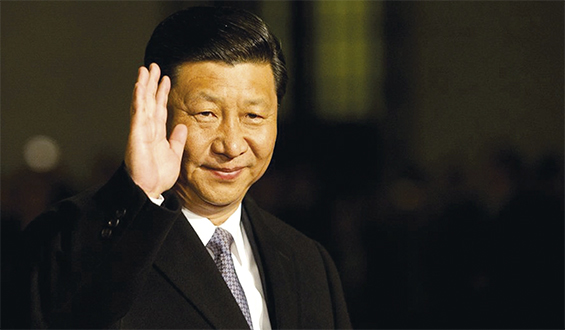
In a move that will increase government control over universities, the Communist Party of China (CPC) has announced plans to further encourage the teaching of communist ideals in China’s higher education institutions.
The nation’s education ministry is asking educators to promote “core socialist values” on social media. Those who “identify, resist, and critique harmful information online” are promised monetary awards for their successes.
China’s leader, Xi Jinping, has increased Communist Party control of universities more than once, and also encourages tightening censorship and cracking down on dissent. The party plans to establish an ideological publicity team whose messages center on reaching young people via the Internet. The organization is asking for the help of educators on this mission.
Zhu Jidong, a scholar of socialism research at the Chinese Academy of Social Sciences, said:
It is rare for the education ministry to highlight the role of new media, which should become a centerpiece, as the Internet has become the younger generation’s main source of knowledge and discourse.
There is increasing emphasis on ideological education of the party and tenets of Marxism under the new leadership headed by President Xi Jinping who launched a massive anti-corruption campaign to restore its credibility among the public.
Universities are often complicit in the promotion of these goals. For example, last month, Tsinghua launched a free online course aimed at students abroad to teach them “Mao Zedong Thought.” According to the Press Trust of India, several universities in Beijing have announced plans to spend 200 million yuan ($31.5 million USD) each year to promote Marxism on college campuses.
This news comes after the first “Global Marxism Conference” at Peking University. Over 400 scholars and officials attended, and the two-day event is scheduled to be held every two years in the future.
Miles Yu of the Washington Times quotes the “Statement of Common Understanding” that ended the conference. It reads, in part:
Marxism is the light guiding today’s international community plagued with various complicated troubles to escape mankind’s predicament [and]march towards a bright future.
However, not all of its attendees supported Marxism uncritically. For example, one American scholar of Marxism asked audiences whether Karl Marx would support censorship and the banishment of taboo subjects. The keynote speaker from Harvard mentioned some of these forbidden topics, like the Tiananmen pro-democracy movement in 1989. He also said that the President’s agenda was not the “intellectually coherent, robust, and wide-ranging philosophy needed to stand up to western ideas.”
Chinese students have been required for years to take “political education” classes. Those who teach them are required to take 24 hours of “ideological education” every year. Many teachers do not go, however, according to the China Post. Tang Zhongbao, an associate professor of Marxism, said:
Unfortunately, some teachers still scorn those seminars. Therefore, it is important to set a minimum course length to guarantee their partiicpation.




